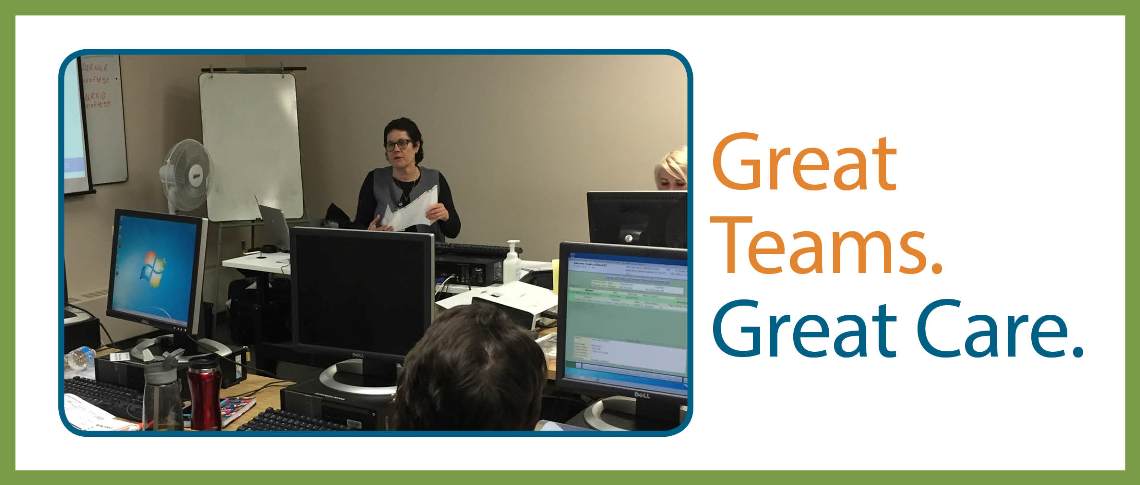

What began as a technology challenge 12 years ago — to take pen and paper out of the hands of clinicians — has proven a stepping stone to a brand-new career for Chris Malo, formerly a Registered Nurse with homecare and seniors health.
His deceivingly simple assignment — to go paperless — has today morphed into the creation of the Central Zone e-Health team, of which Malo is now the Clinical Information Business Lead for Central Zone.
“Other industries have been using technology for years to gather information and to improve processes,” says Malo. “By comparison, the healthcare industry can appear antiquated when it comes to technology and records.”
The eHealth team is responsible for Central Zone clinical information systems such as InterRAI and Meditech. This technology supports healthcare activities such as assessments, interventions and care planning.
Some describe members of the eHealth team as “accidental nursing informaticists.” Surprisingly, rather than coming from an Information Technology (IT) background, they’re all Registered Nurses.
“My kids say that I’m an IT nurse,” Malo says with a grin.
Their clinical background helps eHealth team members better understand the language, processes, requirements and challenges faced by frontline healthcare providers. This allows them to develop and support the use of technology that reflects evidence-based practice, accreditation and legislative requirements.
“Knowing the nursing role helps me ask the right questions,” adds Malo. “It also gives our eHealth team credibility. People trust us because we have worked on the frontline.”
One significant component to eHealth is educating clinicians on how to use the technology.
The information available through clinical systems is only as good as the quality of data entered. This means that clinicians are taught to follow specific rules, processes and terminology during in-person and online training sessions provided by eHealth.
“When caring for patients in the paper world, clinicians use a variety of shortcuts or abbreviations that can make records inconsistent,” says Malo. “In an IT system, we need to use a consistent language.”
As well, the eHealth team educates users about the Health Information Act, so information is accessed appropriately with regards to privacy regulations.
Over the years, the many benefits of clinical information systems (CIS) have been recognized.
“We can now provide solid metrics,” says Malo. “We are also introducing systems such as the Omaha system to help with consistent care planning from multi-disciplinary clinicians and teams.”
eHealth has also helped to identify system gaps and assumptions. For example, there is often an expectation that nurses are always connected to technology. However, in a homecare or rural community setting, it can be difficult to connect to IT systems remotely. Under such circumstances, nurses cannot do electronic charting while they’re with the patient or away from the office. Instead, they make notes on paper, then chart onto an IT system later.
eHealth is well-positioned to address these gaps, says Malo. It would be ideal if clinicians had ongoing connection to IT systems regardless of where the care is being provided. Through improvement processes, his team provides support to meet the needs of these users.
As the need for nursing informatics grows, the formal education available to prepare a nurse for this niche role is expanding and changing.
“This is an opportunist type of position,” says Malo. “RNs who are interested must be quick learners, good communicators and have the ability to influence their colleagues to do something differently.”
Nursing Infomatics is one of many unique roles now being celebrated during National Nursing Week. Share what nursing looks like for you on social media using #YESThisIsNursing.